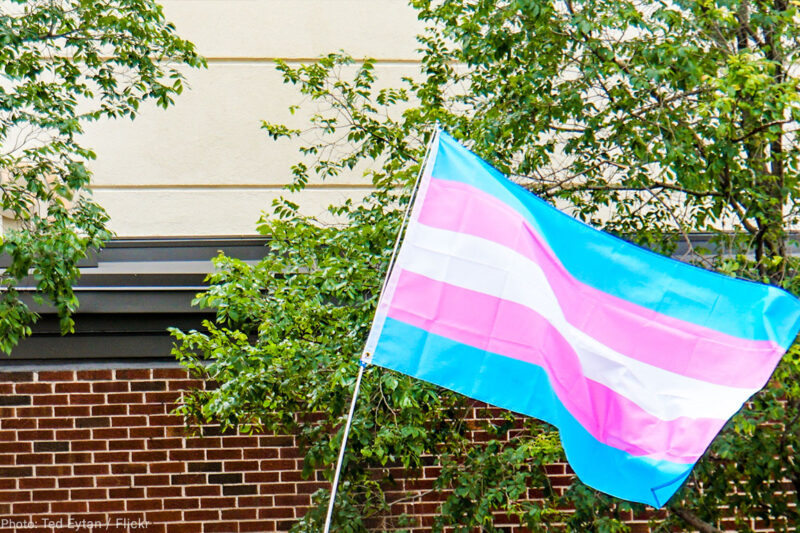Federal Court in Philadelphia Joins Growing Chorus Defending Trans Students


It was just over a year ago that Laverne Cox told us to google Gavin Grimm, the high school student barred from his school’s restrooms because he is transgender. America listened.
Since then, celebrities like Cox and students like Grimm have helped us understand what it means to be transgender. That new understanding is reflected in path-breaking court decisions recognizing that transgender people have the freedom to live openly at school, at work, and in the military. And it led voters to reject a recent ballot initiative that sought to exclude transgender people from restrooms that match their gender identity — a victory for the transgender community that was unthinkable when Cox stood up at last year’s Grammy Awards.
That momentum got a giant push forward yesterday from a federal appeals court in Philadelphia. The court rejected another attempt to bar transgender boys and girls from restrooms and locker rooms that other boys and girls use. And it did so in a powerful opinion affirming “the needs, humanity, and decency of transgender students.”
Cisgender students at Boyertown Area Senior High had sued to block transgender students like Aidan DeStefano from using facilities that correspond to their gender identity. They claimed that boys like Aidan are really “girls,” and that their mere presence in restrooms and locker rooms amounted to privacy violations and sexual harassment.
Last month, the Third Circuit Court of Appeals took the unusual step of rejecting those claims just minutes after the case was argued, signaling that it understood the importance of the case to students and the community. Yesterday, the court issued an opinion explaining its reasoning and displaying particular insight and empathy for transgender students.
First, the court rejected efforts to use misleading language to label transgender students as other than who they are. By calling transgender boys “girls” and transgender girls “boys,” opponents of LGBT equality hoped to sow confusion and fear about students sharing common spaces. The court saw through that tactic and embraced accurate, respectful language to describe both transgender students and their peers, becoming the first federal court of appeals to use the word “cisgender.”
Next, the court recognized that there is nothing wrong, let alone illegal, about going about daily life while being transgender. That includes using shared restrooms and locker rooms. What is offensive is comparing being transgender to the outrageous conduct involved in many sexual harassment cases, like a supervisor demanding that his employee dance nude. Yet that’s precisely the comparison the challengers made.
Finally, the court pointed out an even more basic flaw in the cruel effort to block transgender students from using the same restrooms and locker rooms as other boys and girls: Federal courts have already recognized that not only are schools not prohibited from treating transgender students equally, they are legally required to do so. That’s because discrimination based on transgender status is a form of sex discrimination barred under federal law.
As the court wrote, forcing transgender students to use facilities apart from other students “would very publicly brand all transgender students with a scarlet ‘T,’ and they should not have to endure that as the price of attending their public school.” Indeed, the court recognized that such discrimination can exacerbate the challenges transgender students already face and even be life-threatening.
Yesterday’s opinion confirmed what schools around the country have found to be true: Treating boys and girls who are transgender like other boys and girls is the right thing to do and fosters a positive school environment. And that’s good news not only for transgender students like Gavin and Aidan, but for all students.


